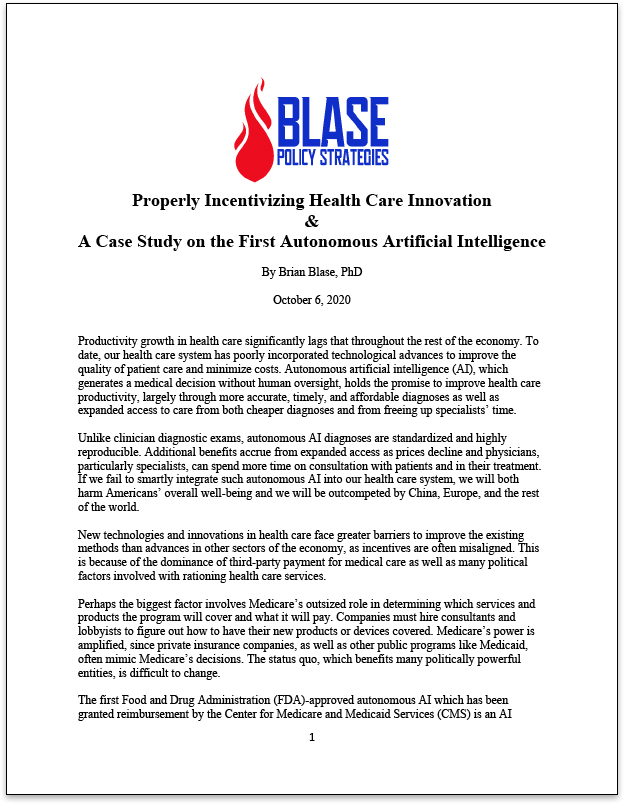Galen Senior Fellow Brian Blase looks to the future in a new paper describing a medical innovation that can improve health care productivity—largely through more accurate, timely, and affordable diagnoses—and expand access to care by more efficiently deploying specialists’ time and making tests less expensive.
In a new analysis, “Properly Incentivizing Health Care Innovation & A Case Study on the First Autonomous Artificial Intelligence,” Blase describes the benefits of an FDA-approved innovation which uses autonomous artificial intelligence (AI) to generate a medical decision without human oversight. But Medicare’s outdated payment methodologies may prevent seniors from receiving its benefits.
In this paper, Blase examines why productivity in health care lags the rest of the economy, focusing on the problems with Medicare’s payment methodology. Medicare primarily bases reimbursement on complex formulas that place value on inputs like physicians’ time, failing to account for and reimburse automations that can produce faster, more accurate diagnoses.
To demonstrate the problem, Blase uses a case study of an autonomous AI that can diagnose diabetic retinopathy, a condition which can lead to severe eye damage and vision loss, including blindness. Autonomous AI delivers a much cheaper and more accurate diagnosis than a clinician’s examination. By improving the diagnosis and reducing its cost, the technological breakthrough can increase access to important treatments that will prevent vision loss and blindness.
But this promise will not be fulfilled unless the Centers for Medicare and Medicaid Services appropriately reimburses autonomous AI, something it failed to do in its 2021 proposed Medicare physician fee schedule rule, in large part because of antiquated and perverse rules for how it sets Medicare payments.
Washington must figure out how to properly compensate technological breakthroughs that radically improve diagnoses and treatment to move our health sector into the 21st century. The first step is to fully understand the problem, and Blase’s analysis and the case study demonstrate the problem and need for reform.
More information here: http://blasepolicy.org/406-2/

